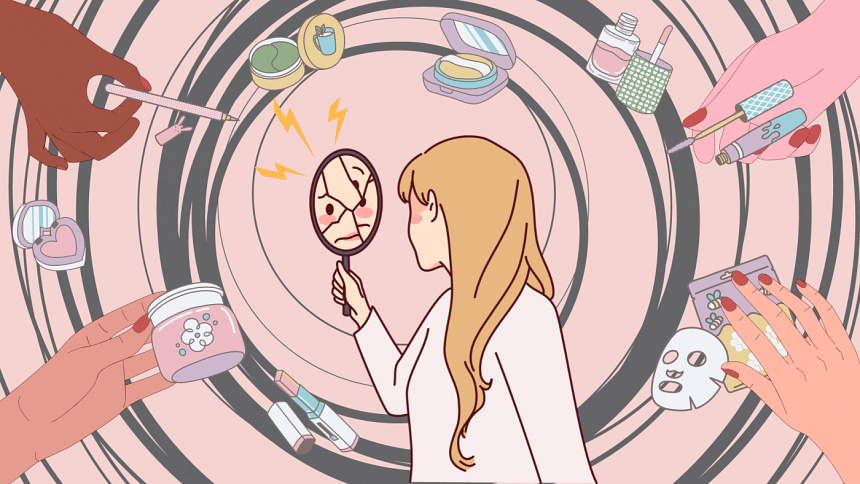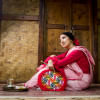Giving unsolicited beauty advice is not a good look

I had once asked a cousin if there was anything she would like me to change about myself.
"You should wear more makeup," she had responded right away.
Back then, in all my preteen naivety, I assigned immense value to her words. I remember feeling fatally embarrassed when she said that and later that night, I came back home desperate to find some makeup inspiration on Pinterest.
Of course I know better now. Fashion choices and makeup, or the lack thereof, are incredibly powerful tools of self-expression. Everyone reserves the right to express themselves however they deem fit, as long as they make the choices of their own accord. This simple truth, however, often gets overshadowed by a malpractice rampant in our culture: policing women and young girls on how they look.
While some women are constantly bombarded with unsolicited weight loss tips, others are literally force-fed at dinner parties so that they gain more weight. Some, like me, are always pushed to wear more makeup while others are teased and told to "tone it down a little." Girls with acne and scars are always given unsought skincare advice and those of darker complexions are encouraged to look into skin-brightening treatments. It does not matter if the women in question have health issues or suffer from poor self-image already. If something does not align with conventional beauty standards, it will be brought to our attention so that we can "fix" it.
This disregard for our mental and physical health is not only dehumanising but obviously very dangerous as well. Constant scrutiny of a person's eating habits and misinformation about certain foods can trigger an eating disorder. Additionally, skincare advice unfounded in terms of medical evidence can sometimes mean trouble for your skin. Furthermore, having bodies be verbally dissected and devalued can contribute to the development of different mental illnesses in a person. Considering the fact that most people in our culture do not have access to mental health services or information, the consequences of receiving unsolicited advice can potentially be extreme.
One might find it ironic how something so rude as giving unsolicited beauty advice is such a common practice in a culture that insists on being gracious and polite. But the answer to this conundrum is very simple, and that is the patriarchy. Most people who spout advice about all the flaws in a girl's body do so because our culture has taught us to subconsciously look at a girl's "desirability" before anything else. This may also be the reason why men are rarely subjected to such scrutiny regarding their bodies, as saying anything unflattering serves as emasculation. Besides, it is not their looks that society worries about anyway.
Unfortunately, receiving unsolicited beauty advice is probably something our generation has to wait out. However, if possible, we can try to educate people who give such unsolicited advice about why they should stop. Otherwise, feel free to cope with it in whichever healthy way you want to, be it walking away from the offenders or repeating positive affirmations in your head. At the end of the day, your beauty is not dictated by unwelcome voices.
Fabiha is secretly a Lannister noblewoman and Slytherin alum. Pledge your allegiance and soul to her at [email protected]

 For all latest news, follow The Daily Star's Google News channel.
For all latest news, follow The Daily Star's Google News channel. 








Comments